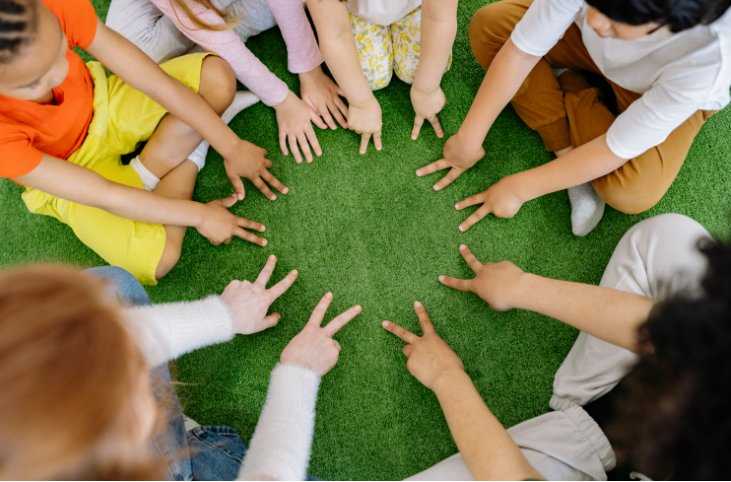STEM education is fast gaining momentum. However, there’s a growing need to focus on STEM applications and education to ensure smooth integration of knowledge.
Let’s take a look at why and how STEM education can be linked to practical applications.
Why Applied STEM Matters
Remember finding a lesson or subject you studied in school particularly uninteresting? At some point, you probably wondered why you were studying it. How would it help you in real life?
You aren’t alone. We’ve all had this thought. In fact, you may have thought of this even when you’re learning something interesting in school. It is quite natural to question practical applications of what you’re studying and how you can use your newfound knowledge and skills in real life.
This is why there’s such a strong emphasis on applied STEM. When students know the practical benefits of what they’re learning, they automatically find the lessons more meaningful and relevant. It makes them more interested in what they study since they know they can use their knowledge to navigate various real-life scenarios.

Additionally, knowing the practical applications of STEM helps students recognize future career opportunities. They can identify growth opportunities and career prospects, explore new fields and be more receptive to trying new things. This also helps them be more mindful of their academic and career-related decisions and consciously seek learning opportunities that nurture their growth.
So, how can innovative and interactive after-school STEM programs help kids value what they learn and practically utilize their knowledge? Here are a few everyday applications of STEM education.
Cooking & Meal Prep
There’s a lot of science and math involved in culinary art. From preparing meal plans and sorting your ingredients to the actual cooking process, there are plenty of ways to apply STEM knowledge when working with food.
For example, children can apply crucial mathematical concepts and calculations when measuring ingredients, preparing food for a certain number of people, and making adjustments to recipes. This is particularly useful while baking since it requires specific measurements. Children can hone their addition, subtraction, multiplication, and division skills when following recipes. They can also practice mathematical conversions when using the different metrics listed on food scales and measuring tools.
Both cooking and baking teach kids about food science. They learn how certain ingredients react with one another to produce specific chemical reactions. Moreover, working with food also introduces kids to problem-solving. They can apply their STEM learning to adjust recipes, substitute ingredients, and tackle other challenges that may emerge while preparing food.

Cleaning
Cleaning is often viewed as a chore by children. However, it can easily become a fun activity once they learn how to apply their STEM education in various cleaning tasks. For example, cleaning activities exposes children to different cleaning agents, tools, and equipment. This introduces them to a basic understanding of chemicals and how they react with different objects. From DIY baking soda and vinegar cleaning solutions to commercial products, the options are endless.
Children can also apply their mathematical and critical thinking skills during cleaning tasks. For instance, they may be required to calculate the amount of a specific product needed for cleaning a surface or the time needed to let that product have the desired impact. They can also learn how different technologies work by using appliances such as vacuum cleaners and washing machines. This also allows them to compare manual and automated techniques and procedures.
Grocery Shopping
Who says kids hate grocery shopping? Make it a fun activity where they can apply their STEM knowledge, and it’ll become one of their favorite activities.
Getting kids involved in creating weekly shopping lists is a great way to help them apply their mathematical skills. It allows them to carefully calculate the quantities required for each item on the list, how much they’ll cost, and how they can make adjustments to accommodate things within their budget. They can also learn how to calculate cost reductions during discounts and sales, gaining greater financial awareness.
Grocery shopping also helps them apply problem-solving skills. What happens when a certain item isn’t available? What do you do when the prices are higher than what you expected? How do you differentiate between two similar products available at the store to buy the one that adds more value? Children can learn how to make informed decisions and navigate unexpected situations by applying their critical thinking skills.

Commuting
What’s a better way for a child to apply their knowledge of speed, velocity, time, and distance than when they’re commuting to and from places? Irrespective of the mode of transport being used, they can easily apply these concepts when traveling. They can then draw comparisons between different transportation methods and identify efficient practices to enhance their commuting experience.
Moreover, commuting also helps children explore new ideas. Remember when we used to talk about space cars during our childhood? While we may not have those yet, technology has certainly introduced us to new and improved vehicles over the years. In fact, space travel is more of a possibility than ever before! Traveling allows children to be imaginative and think of innovative solutions, putting their creativity to use.
Get Started with CompuChild
CompuChild aims to provide educators and entrepreneurs with children’s education franchise opportunities through its after-school programs. The Entrepreneurial STEAM-focused classes we offer are geared toward children’s enrichment, innovation, and personality building, helping students apply STEM knowledge to real-life scenarios. Our programming, robotics, stop motion animation, and other technology-focused courses spread STEM & STEAM awareness while our classes on communication, financial awareness and ethics instill fundamental entrepreneurial skills at an early age. Overall, we strive to provide students with a hands-on and fun learning experience that makes them understand the significance of STEM education and helps them develop an entrepreneurial mindset. We supplement traditional learning with our collaborative and innovative courses, helping children become familiar with applied STEM at a young age. Reach out to us to learn more about our kids franchise, STEM education franchises, and own a franchise today.


